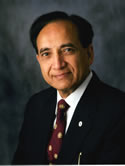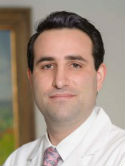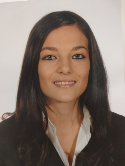Skull base surgery for malignant tumors: The 2nd international collaborative study (1995–2015) Journal Article
| Authors: | Shah, J. P.; Levyn, H.; Valero, C.; Adilbay, D.; Eagan, A.; Zheng, J.; Gonen, M.; Cohen, M.; Patel, S.; Ganly, I.; Pai, P.; Castelnuovo, P.; Gao, F. J.; Piazza, C.; Nicolai, P.; Panizza, B.; Bowman, J.; Barnett, C.; Kowalski, L. P.; Toledo, R.; Fliss, D. M.; DeAlmeida, J.; Witterick, I.; Herman, P.; Fontanella, W.; Aniceto, G. S.; Hosal, S.; Ozer, S.; Iyer, S.; Harvey, R.; Leemans, C. R.; Hendrickx, J. J.; Figari, M.; Boccalatte, L.; Nibu, K. I.; Clarke, P.; Rennie, C.; Ming, Z. Y.; Cernea, C.; Goncalves, S.; Schlosser, R.; Dias, F.; Sargi, Z.; Ahmed, S.; Golusinski, W.; Kim, S. H.; Su, S. Y.; Raza, S. M.; DeMonte, F.; Hanna, E. |
| Article Title: | Skull base surgery for malignant tumors: The 2nd international collaborative study (1995–2015) |
| Abstract: | Background: The current study presents the effort of a global collaborative group to review the management and outcomes of malignant tumors of the skull base worldwide. Patients and methods: A total of 28 institutions contributed data on 3061 patients. Analysis evaluated clinical variables, survival outcomes, and multivariable factors associated with outcomes. Results: The median age was 56 years (IQR 44–67). The open surgical approach was used in 55% (n = 1680) of cases, endoscopic resection was performed in 36% (n = 1087), and the combined approach in 9.6% (n = 294). With a median follow-up of 7.1 years, the 5-year OS DSS and RFS were 65%, 71.7% and 53%, respectively. On multivariable analysis, older age, comorbidities, histology, dural/intracranial involvement, positive margins, advanced stage, and primary site were independent prognostic factors for OS, DSS, and RFS. Adjuvant RT was a protective prognostic factor. Conclusion: The progress across various disciplines may have contributed to improved OS and DSS in this study compared to previous reports. © 2024 Wiley Periodicals LLC. |
| Keywords: | adult; cancer survival; human tissue; treatment outcome; aged; middle aged; retrospective studies; clinical trial; mortality; cancer recurrence; follow up; neurosurgery; antineoplastic agent; cancer immunotherapy; pathology; surgical approach; retrospective study; histology; groups by age; postoperative complication; multicenter study; prognostic factors; comorbidity; surgery; postoperative infection; surgical mortality; skull base neoplasms; neoadjuvant chemotherapy; postoperative hemorrhage; hematoma; endoscopy; adjuvant radiotherapy; disease specific survival; liquorrhea; meningitis; skull base tumor; international cooperation; neurosurgical procedures; skull surgery; recurrence free survival; epidural abscess; procedures; multimodality treatment; neuroendoscopy; immunologic agent; open surgery; adjuvant chemoradiotherapy; survival outcomes; skull base tumors; humans; prognosis; human; male; female; article; skull base cancer; global collaboration; rasch-built overall disability scale |
| Journal Title: | Head & Neck |
| Volume: | 46 |
| Issue: | 11 |
| ISSN: | 1043-3074 |
| Publisher: | John Wiley & Sons, Inc. |
| Date Published: | 2024-11-01 |
| Start Page: | 2762 |
| End Page: | 2775 |
| Language: | English |
| DOI: | 10.1002/hed.27746 |
| PUBMED: | 38770972 |
| PROVIDER: | scopus |
| PMCID: | PMC11473241 |
| DOI/URL: | |
| Notes: | The MSK Cancer Center Support Grant (P30 CA008748) is acknowledged in the PubMed record and PDF. Corresponding MSK author is Jatin P. Shah -- Source: Scopus |
Altmetric
Citation Impact
BMJ Impact Analytics
MSK Authors
Related MSK Work













